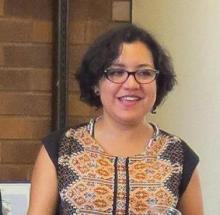This dissertation is a Chicana feminist analysis focused on the resistances to the impact of commercial markets on embodied performance in translocal Chican@ and Mexican@ communities in California, Veracruz, Mexico and Seattle Washington and the degrees to which capital deconstructs embodiment in order to harness its creative power. Importantly, it is an analysis of the techniques, and tools that East Los Angeles Chican@ artivistas, or artist/activists have developed in tandem with their translocal communities through the practice of convivencia,-profound practices of convening as community outside of commercial markets. Through my experience in performance practice, feminist interpretive praxis, and analysis as a participant observer in community building efforts through embodied performance practices, this dissertation will highlight a methodology of community building utilizing musical tools and social techniques focused on participatory music and dance practices, collective songwriting processes as well as digital technologies that include recording equipment and social media. The goal is to map and theorize individual and community momentum of Chican@ artivistas from Eastside neighborhoods as they harness creative power to imagine and re-construct various elements of their communities such as food sovereignty, money recycling, self-sustained community services, artistic networks, spaces (physical, spiritual, ideological) and knowledge production. By channeling the power and participatory practice of music, art, theatre, and other forms of creative expression as dialectic tools Chican@ artivistas are challenging capital markets social arrangements of music and other forms of creative expression. In this way, Chican@ artivistas, praxis of community building through music and art is an exercise in hope. When we come to understand that "love is a powerful force that challenges and resists domination," hope is that which lead us to internalize this through our very actions. Therefore hope must be acknowledged, valued and freed from colonialist thought (cynicism, indifference) in order for imagination to be exercised. In this sense, I seek to create a hermeneutic arc between the Chican@ artivista, musical experience and how it functions in community to show how these efforts translate into acts of hope. Through ethnographic narratives, oral histories, participatory observation, close readings of culture production, embodied musical experience both on the stage and in participatory music and dance practice; I will demonstrate how the Chican@ artivista, experience in music and other creative expressions is one that is relational and deeply committed to social justice.
